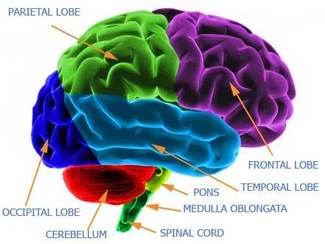| We make choices every day. We get up in the morning and decide what to eat for breakfast, where to go from our homes, whom we will see, what we will say, and what we will do with our lives. That's the theory, anyway. There has been speculation from scientific circles in recent years that challenges the very idea that human beings have free will. Among the most famous of these is a study by the neurologist Benjamin Libet. |
Our subconscious, our nerves and muscles all have decided what we will do before our consciousness ever finds out. The conscious mind comes up with the explanations, or the rationalizations, for our behaviors only after the fact. Libet concluded that the whole idea of free will may be an illusion.
Libet's study raises serious philosophical, moral and religious questions. It even has implications for criminal justice. If our bodies decide to do things without the involvement of the thinking, reflecting, considering parts of our brains, how can people be held responsible for their actions? If we do not choose to do things with the part of us that is capable of making moral decisions, is morality meaningful?
These are questions that were considered by the ancient rabbis long before Libet's study. In this week's Torah portion (Bo), God tells Moses, "Go to Pharaoh for I have hardened his heart and the hearts of his servants so that my signs may be displayed in his midst" (Exodus 10:1). A classical midrash (Bereishit Rabbah 13:3) asks whether God denied Pharaoh the ability to freely choose his actions by hardening his heart. It troubles the rabbis that God eventually punished Pharaoh for actions he may not have been free to choose.
Rabbi Yochanan said, "Does the 'hardening of Pharaoh's heart' provide heretics with grounds to claim that Pharaoh had no way to repent?" Rabbi Shimon ben Lakish answered, "Let the mouths of the heretics be stopped up… When God warns a person once, twice, and even a third time, and he still does not repent, then God's heart closes against repentance… Thus it was with wicked Pharaoh. Since God sent five times to him and he took no notice, God said, 'You have stiffened your neck and hardened your heart, so I will add to your uncleanness.'"
Rabbi Shimon ben Lakish says that when people freely and repeatedly choose a path that goes against God, they close themselves from divine compassion. As they harden themselves, God responds by hardening against them.
From a psychological perspective, this could be understood as a natural consequence of indulging in behavior that is willfully ruthless and cruel. The more people become used to behaving in uncaring ways, the more they become deaf to any call toward compassion. God does not deny free will to Pharaoh, Rabbi Shimon may be arguing. Rather, Pharaoh's own choices remove him from the ability to be moved by ethical concerns.
How shall we reconcile this with what modern science teaches us about free will? Benjamin Libet's research suggests that our behavioral choices are more on the instinctual level than on the conscious level. Acting ethically may be more of a habit than a conscious decision. Through repetition, we inure ourselves to behaving well or behaving poorly. Morality may be more about subconscious patterns of behavior than we had imagined, but it is still something human beings can nurture within themselves, even on a Pavlovian level.
That is also, in a curious way, what the midrash suggests. Pharaoh did not lose his free will because of a divine thunderbolt. Through his own behavior and choices, Pharaoh trained himself toward the kind of hardhearted behaviors that stripped him of the ability to do otherwise. That is why God says that Pharaoh's heat was hardened; it was the consequence of his own choices.
And what does that teach us about ourselves? Be very careful about the choices you make in life. Every time you choose to respond to another person with care and compassion, you are setting an unconscious pattern that will be repeated. Every time you choose to be indifferent or unresponsive to the needs of others, you train yourself to be as stubborn and unmovable as Pharaoh.
Other Posts on This Topic:
Bo: Hitting Rock Bottom
You are What You Choose to Be
Bechukotai: Being Commanded, Choosing Joy


 RSS Feed
RSS Feed
